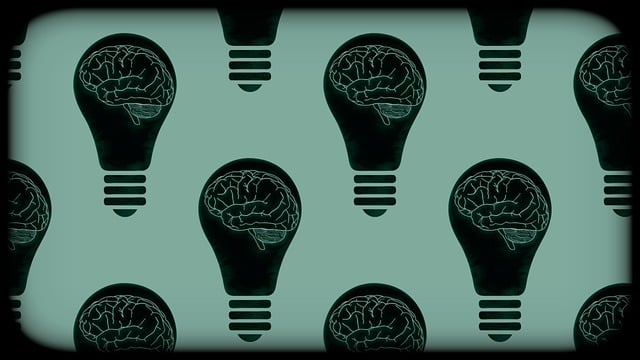Crisis intervention strategies, focusing on immediate support and stabilization, are crucial in managing acute mental health crises for adults. This involves active listening, emotion regulation techniques, and strategic planning to connect individuals with suitable ongoing care, including therapy for adults and mental health evaluations. A holistic approach integrating long-term policy analysis, early warning sign recognition through self-awareness exercises, and targeted assessments ensures comprehensive crisis intervention needs are met, fostering resilience and preventing depression. Post-crisis support through structured programs empowers adults to heal, develop coping strategies, and achieve long-term mental well-being, with a key focus on therapy for adults and mental health evaluations.
In moments of crisis, effective intervention can make a world of difference. This comprehensive guide explores essential strategies for therapists supporting adults through mental health emergencies. From understanding the foundational concepts of crisis intervention to navigating complex evaluations and implementing evidence-based techniques, this article equips professionals with the tools needed to foster resilience and promote recovery. Discover key components of thorough mental health assessments and effective post-crisis support systems, enhancing therapy outcomes for vulnerable individuals.
- Understanding Crisis Intervention: A Brief Overview
- Adult Mental Health Evaluations: Key Components and Process
- Strategies for Effective Crisis Intervention in Therapy
- Post-Crisis Support and Recovery: Nurturing Resilience in Adults
Understanding Crisis Intervention: A Brief Overview

Crisis intervention strategies are vital tools in addressing acute mental health crises for adults. It involves a structured, short-term approach to provide immediate support and stabilize individuals experiencing severe emotional distress or a mental health emergency. The primary goal is to help individuals cope with their current situation, ensure safety, and reduce the intensity of symptoms. This process often includes active listening, emotion regulation techniques, and strategic planning to connect individuals with appropriate ongoing care, such as therapy for adults and mental health evaluations.
Understanding crisis intervention requires a holistic view, encompassing not just immediate response but also long-term mental health policy analysis and advocacy. Self-awareness exercises can play a crucial role in equipping individuals and support systems to recognize early warning signs of distress. By integrating these practices, we contribute to the prevention of depression and foster resilient coping mechanisms, demonstrating a comprehensive approach to addressing crisis intervention needs within the broader landscape of adult mental health.
Adult Mental Health Evaluations: Key Components and Process

Adult Mental Health Evaluations are a crucial step in providing effective therapy and crisis intervention guidance for individuals experiencing psychological distress. The process involves a comprehensive assessment to understand the nature, severity, and underlying causes of mental health concerns. Key components include gathering detailed information about the client’s history, current symptoms, and any relevant risk factors through structured interviews, self-report questionnaires, and behavioral observations. This thorough evaluation allows professionals to tailor interventions suited to the individual’s unique needs.
The evaluation typically includes assessing cognitive functions, mood, anxiety levels, psychotic symptoms, substance use patterns, and social skills. Professionals may employ specialized tools like diagnostic interviews or psychological tests designed for adults. Emotional intelligence plays a significant role in interpreting these assessments, enabling mental health professionals to offer evidence-based treatments, such as Social Skills Training, which focuses on enhancing interpersonal interactions and communication. Crisis Intervention Guidance is integral during this phase, ensuring that clients receive immediate support while the evaluation process unfolds.
Strategies for Effective Crisis Intervention in Therapy

Effective crisis intervention in therapy involves a combination of strategies tailored to address immediate needs while fostering long-term resilience. Initially, therapists should create a safe and non-judgmental environment, ensuring clients feel heard and understood. This foundation is crucial for building trust and encouraging open communication. Active listening, empathy, and validation are powerful tools to help individuals process their emotions and gain perspective during distressing times.
Additionally, therapy for adults often incorporates techniques aimed at self-esteem improvement and inner strength development. Encouraging clients to identify personal resources and coping mechanisms enhances their ability to navigate future challenges. Integrating emotional healing processes into crisis intervention allows individuals to work through underlying issues while developing healthier ways of managing stress. This holistic approach not only addresses the current crisis but also equips clients with skills for improved mental health evaluations and overall well-being.
Post-Crisis Support and Recovery: Nurturing Resilience in Adults

Post-crisis support is a critical phase in an individual’s journey toward recovery and resilience. Following a traumatic event or intense crisis, adults may experience a range of emotional and psychological responses, including anxiety, depression, and a sense of helplessness. Therapy for adults plays a pivotal role in fostering post-crisis healing and building mental health resilience. Through structured support systems and targeted interventions, individuals can learn to process their experiences, develop coping strategies, and regain a sense of control over their lives.
One effective approach is incorporating depression prevention techniques, encouraging positive thinking, and enhancing social skills training. These components are key to helping adults navigate the aftermath of a crisis and promote long-term mental well-being. By addressing emotional needs, providing a safe space for expression, and offering practical tools for coping, professionals can guide individuals toward building resilience and fostering a sense of personal empowerment.
In conclusion, effective crisis intervention strategies are vital for fostering resilience in adults facing mental health challenges. By understanding the process of mental health evaluations and employing techniques from therapy, professionals can navigate these crises adeptly. From initial assessments to post-crisis support, each step plays a crucial role in helping individuals recover and regain stability. Through guidance on adult mental health evaluations and evidence-based strategies, this article aims to empower therapists to provide exceptional care during turbulent times.











